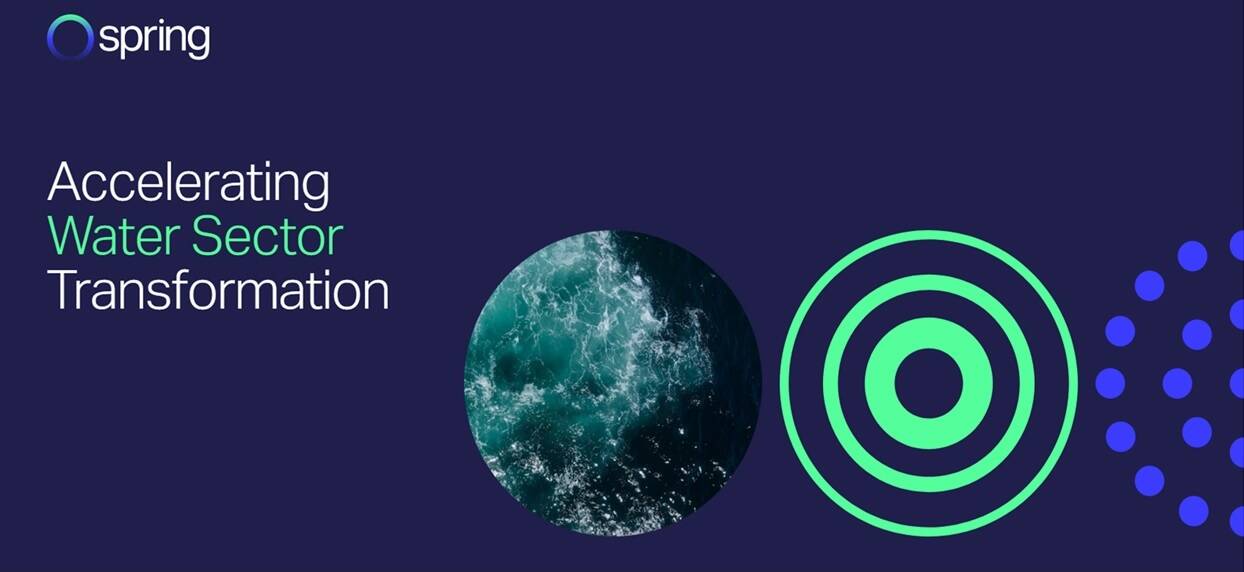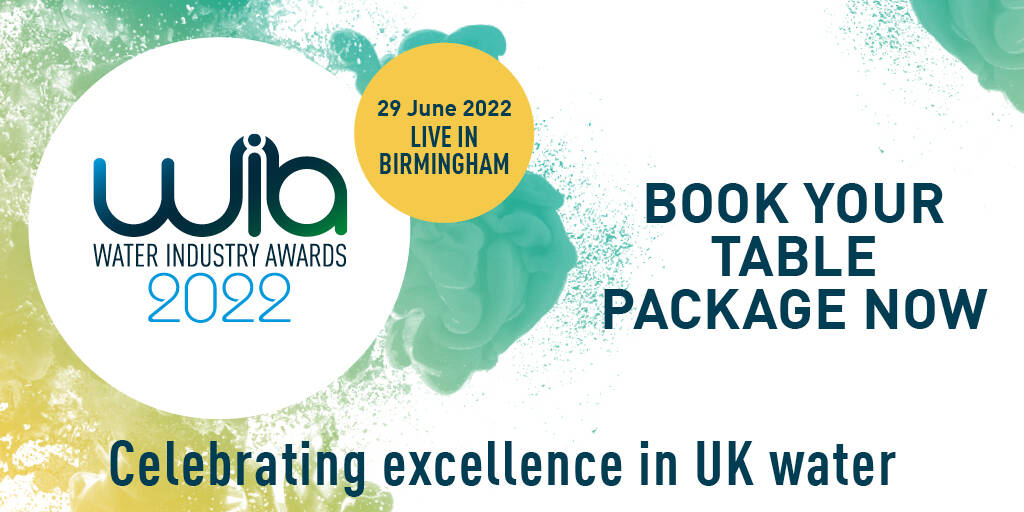You’ve reached your limit!
To continue enjoying Utility Week Innovate, brought to you in association with Utility Week Live or gain unlimited Utility Week site access choose the option that applies to you below:
Register to access Utility Week Innovate
- Get the latest insight on frontline business challenges
- Receive specialist sector newsletters to keep you informed
- Access our Utility Week Innovate content for free
- Join us in bringing collaborative innovation to life at Utility Week Live

Craig Hopkinson, sustainability manager at Anglian Water’s Strategic Pipeline Alliance – and Water Industry Award Rising Star nominee – talks through the role of nature-based solutions in addressing a wide range of crises.
What work experience or qualifications did you have before moving into the industry?
 I studied an international business degree at Loughborough University and completed a placement year at the Youth Hostel Association as their marketing assistant.
I studied an international business degree at Loughborough University and completed a placement year at the Youth Hostel Association as their marketing assistant.
What has been your career highlight thus far?
While working on Anglian Water’s Strategic Pipeline Alliance I successfully applied for the governments Kickstart programme which supported five young people into employment.
Having only recently joined the industry myself it was great to be able to give back and support other young professionals.
What is the most significant way that today’s utilities sector differs from the one you first joined?
From Brexit to Covid it’s been quite the three years! The change I have felt the most is with our customers though; it really feels like they are holding the industry to account on our contributions to climate change and the impacts on the environment. Our customers are wanting us to invest in the future to protect for future generations.
What is your golden rule for overcoming challenges at work generally?
I don’t have a magic wand sadly, but I just always try and be cautiously optimistic. By focusing on the good I’m able to make small but promising steps which over time can overcome any challenge.
How would you describe your creative process in three words?
‘Start from nothing’ – I believe not carrying any preconceived ideas is vital to having the freedom to imagine. I would have picked ‘challenge the status quo’ but that’s four words.
What’s the best piece of advice you’ve been given?
My two favourite quotes are ‘comparison is the thief of joy’ (Theodore Roosevelt) and ‘be yourself; everyone else is taken.’ (Oscar Wilde). Growing up with a speech stammer and struggling with confidence, these quotes really helped define the person I am today.
What do you think Utility Week Innovate readers would be surprised to learn about you?
 I have a black belt in karate. I first started karate when I was eight years old to help control my breathing in a bid to help my speech stammer. Sadly, that didn’t work but I learnt some cool moves and helped teach a kids karate class over five years which was chaotic at best.
I have a black belt in karate. I first started karate when I was eight years old to help control my breathing in a bid to help my speech stammer. Sadly, that didn’t work but I learnt some cool moves and helped teach a kids karate class over five years which was chaotic at best.
Which piece of technology, or app, could you not function without?
 Working in sustainability I must give a shoutout to ‘Too good to go’ which is an app designed to reduce food waste from restaurants and shops. I was shocked to learn that more than a third of food is wasted. Too good to go is a great way to do your bit in preventing food waste and getting some tasty treats for a fraction of the price.
Working in sustainability I must give a shoutout to ‘Too good to go’ which is an app designed to reduce food waste from restaurants and shops. I was shocked to learn that more than a third of food is wasted. Too good to go is a great way to do your bit in preventing food waste and getting some tasty treats for a fraction of the price.
What do you think is the key to creating the conditions for innovation within the utilities sector?
I believe a different perceptive is needed for the sector. If we only focus on financial capital, our thinking will be limited, as a sector we need to adopt a multi-capital approach. By showing value in new ways such as social value and natural capital, it will allow the sector to be open to new solutions which will naturally breed innovation.
What do you think will be the defining factor in the UK hitting its net zero targets?
We need new investment models, but we also need new thinking. We need to stop seeing nature as the unconscious victim and start seeing it as the solution. Nature-based solutions can address both the climate crisis and the nature crisis.
How do you feel utilities companies can collaborate more – or more effectively?
 I was really happy to see the launch of Spring – the new space for accelerating UK water sector transformation through innovation and collaboration. It will be great to expand this out to the wider utilities sector in the future. Although challenges may differ, there will be many cross-purpose solutions and shared learning which can take place.
I was really happy to see the launch of Spring – the new space for accelerating UK water sector transformation through innovation and collaboration. It will be great to expand this out to the wider utilities sector in the future. Although challenges may differ, there will be many cross-purpose solutions and shared learning which can take place.
What is the most significant way you think the utilities sector of ten years’ time will differ from the one we see today?
By the time we reach 2032 the water industry will have delivered on its commitment to become net zero by 2030. I expect to see full use of renewable power, more efficient network operation, green transport solutions and innovation to tackle process emissions. My hope is that by then we won’t be the only sector to have committed to net zero and embraced innovation to achieve a greener, more sustainable future.
What is the biggest challenge you’ve faced during your time in utilities?
I’ve only been in the utility sector for three years and already I am playing a critical role in one of its biggest projects. That is my biggest challenge!
 To book a table and to find out more about the awards, click here.
To book a table and to find out more about the awards, click here.
Please login or Register to leave a comment.